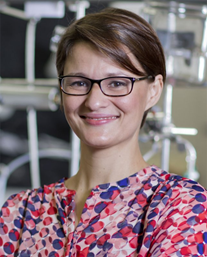Clarkson Receives NSF Grant to Study Pathways by Which Plasmas Degrade Aqueous Organic Contaminants
Selma Mededovic, the Richard and Helen March Endowed Chair of chemical and biomolecular engineering at Clarkson University, and co-researchers from North Carolina State University, and Texas A&M University received a grant from the National Science Foundation (NSF) to further research into the development of multiphase gas-liquid plasma reactors.

The field of low-temperature plasmas (LTPs) encompasses applications ranging from microelectronics fabrication and human implants to lasers and solar cell manufacturing. The success of the development of these technologies relies on the reactions of plasma-generated ions and free radicals. While extensive work has been conducted to identify and quantify reactive oxygen and nitrogen species, the generation mechanisms and subsequent reactions of non-oxidative species such as ions and metastable atoms produced by the plasma are largely unknown. The nearly $800k grant will use state-of-the-art plasma diagnostics measurements alongside bulk liquid chemistry measurements to generate new insights and novel means of analyzing plasmas in contact with liquids.
The project is supported under the ECosystem for Leading Innovation in Plasma Science and Engineering (ECLIPSE) and Critical Aspects of Sustainability (CAS): Innovative Solutions to Sustainable Chemistry (CAS-SC) programs.
